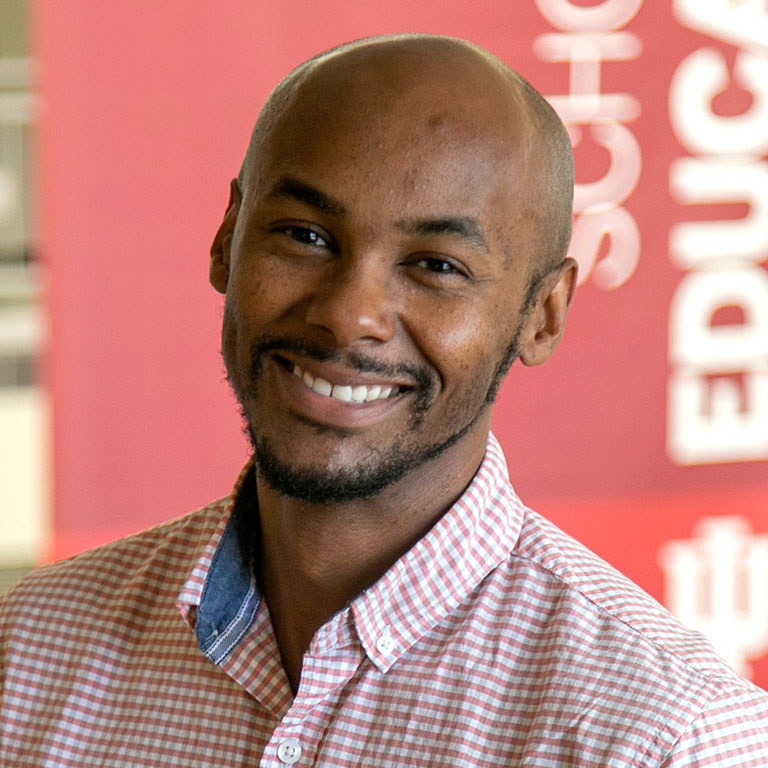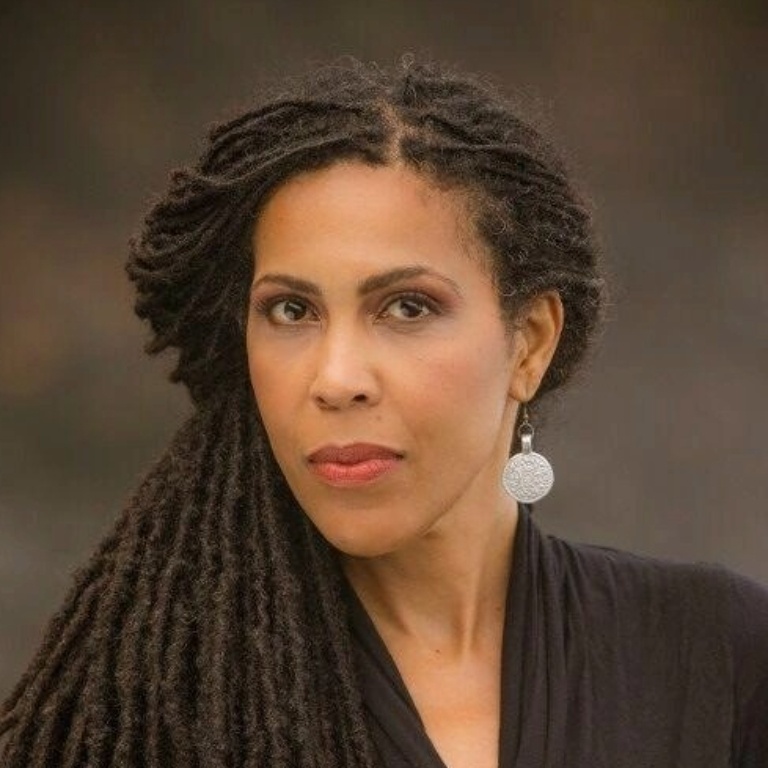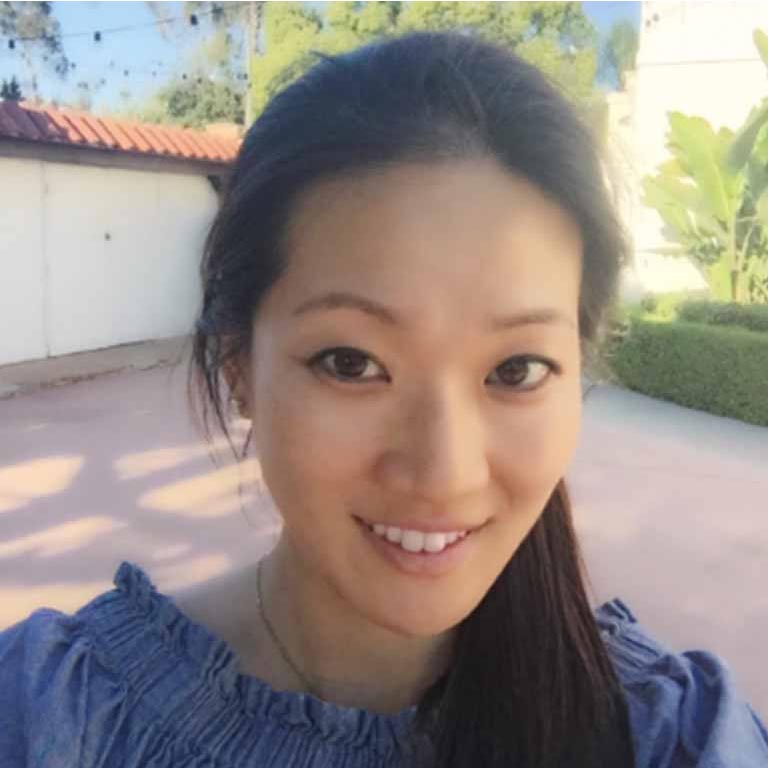CRRES Speaker Series for Fall 2025

"The Color of Connection: Understanding Multiracial Families Through a New Lens"
James Brooks
Assistant Professor
Department of Applied Psychology in Education and Research Methodology
Indiana University
Wednesday, November 5th, 2025, 4:00-5:30pm
Maple Room, Indiana Memorial Union
In his CRRES Speaker Series talk, “The Color of Connection: Understanding Multiracial Families Through a New Lens,” Dr. James Brooks emphasized the growing importance of studying multiracial families as one of the fastest-growing family types in the United States. He highlighted how these families navigate unique social and cultural dynamics that differ markedly from those of monoracial families, including stigma, discrimination, and family disapproval rooted in racism. Brooks underscored that examining multiracial families is not only a matter of inclusion and equity in family research, but also central to promoting well-being, as marginalization directly affects mental health, relationship stability, and child development. He argued that existing scholarship relies too heavily on demographic comparisons, such as interracial versus same-race couples without sufficient theoretical grounding or qualitative insight, leading to fragmented understandings of the lived experiences of multiracial families.
Brooks proposed a more comprehensive and critical framework for understanding these relationships through his concept of the Racial-Ethnic Worldview (REW) Model, which looks at how individuals’ awareness of systemic racism and their attitudes toward other racial groups influence their relational experiences and discussions about race. For instance, multiculturalist partners tend to acknowledge the role of race and engage more openly with issues like Black Lives Matter and the criminal justice system, while color-blind partners engage with such topics less openly and avoid racial dialogue. Brooks concluded by calling for longitudinal, theory-driven research and public education tools, such as multiracial family workbooks to foster empathy, normalize racial dialogue within families, and better capture the evolving realities of multiracial life in contemporary America.

"The Historical Roots of U.S. Fascism."
Dr. Johanna Fernández
Associate Professor
Department of History
The Graduate Center & Baruch College, CUNY
Thursday, October 16th, 2025, 4:00-5:30pm
Oak Room, Indiana Memorial Union
Dr. Johanna Fernández’s talk traced the deep historical roots of American fascism to the violent foundations of the U.S. state. She argued that the settler-colonial and slaveholding origins of the country established a model of governance dependent on citizen participation in state violence, beginning with the genocide of Indigenous peoples and the enslavement of Africans. Laws compelling white citizens to bear arms, including those that inspired the Second Amendment, institutionalized this structure of racialized control. The United States’ wars against Indigenous nations created the template for its global military interventions. Drawing on James Baldwin’s idea that history is carried within us, Fernández underscored that the scapegoating of Mexicans and other immigrant communities is not new but part of a continuous pattern in the United States in which conquest and racial hierarchy underpin national identity.
She connected the rise of contemporary protofascism to the crises of capitalism, tracing how economic restructuring, deindustrialization, and neoliberal policies have transformed social discontent into racialized fear. As wealth concentrated in the hands of elites, white communities experienced the economic insecurities that had already devastated Black and Latinx populations. Political and media narratives of crime, immigration, and terrorism redirected public anger away from corporate power and toward vulnerable communities. Comparing ICE to the brownshirts of Nazi Germany, she emphasized that fascism is sustained not only through authoritarian control of the state but through the mobilization of ordinary citizens to enforce its violence. In the absence of social movements that can identify and address the root causes of American workers’ discontent, she warned, fascist tendencies—in which U.S. imperialism was founded—will continue to grow.

"Language Brokers: Children of Immigrants Translating Inequality and Belonging for Their Families"
Dr. Hyeyoung Kwon
Associate Professor
Department of Sociology
Indiana University
Thursday, September 24th, 2025, 4:00-5:30pm
Walnut Room, Indiana Memorial Union
Dr. Hyeyoung Kwon’s Language Brokers explores the lives of working-class children of Korean American and Mexican American immigrants, who act as translators and interpreters for their families in navigating public services such as healthcare, education, housing, and other institutions. These young people, often in their teens, mediate critical encounters that determine whether their families can access services and exercise even the most basic aspects of American citizenship. Far from being passive dependents, they take on adult responsibilities and develop complex strategies to navigate inequality and belonging in the United States.
In her talk Dr. Kwon situates language brokering within the broader context of citizenship. She shows that it is a contested social practice shaped by power, race, and class. Parents are often criticized for not speaking English, a form of assimilationist gatekeeping that obscures structural barriers and reinforces exclusion. For immigrant families, belonging and inclusion depend as much on social citizenship, the ability to be treated as full participants in society based on de facto social norms, as on formal rights. By examining the practices of language brokers, Dr. Kwon reveals how citizenship is lived, negotiated, and resisted on an everyday basis.
Yet while these strategies of inclusion can open doors, Dr. Kwon underscores the limits of resistance. Language brokering cannot erase systemic inequalities tied to race, class, and citizenship. Instead, it often highlights how deeply institutions rely on exclusionary practices. Dr. Kwon argues that the burden should not fall on children to secure access to citizenship rights for their families. The failures lie with institutions and the state, which have built systems that force children of Korean and Mexican American immigrants into the role of intermediaries. This talk offered a critical rethinking of citizenship, children’s agency, and the contested nature of belonging in the United States.
Center for Research on Race and Ethnicity in Society
Ballantine Hall Room 622
1020 E Kirkwood Ave, Bloomington, IN 47405
Phone: 812-855-8016
Email:
crres@iu.edu